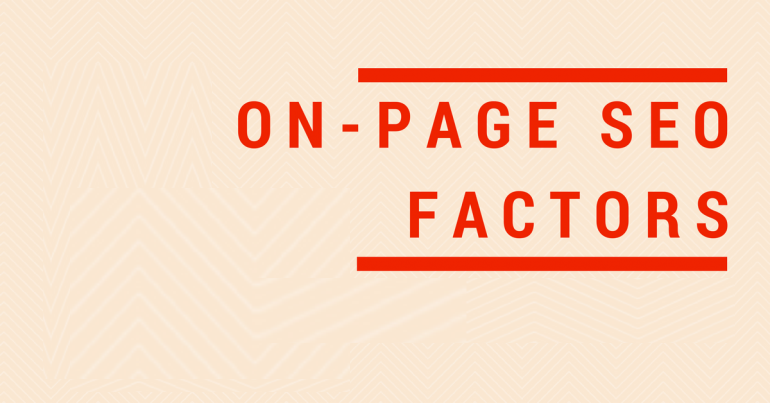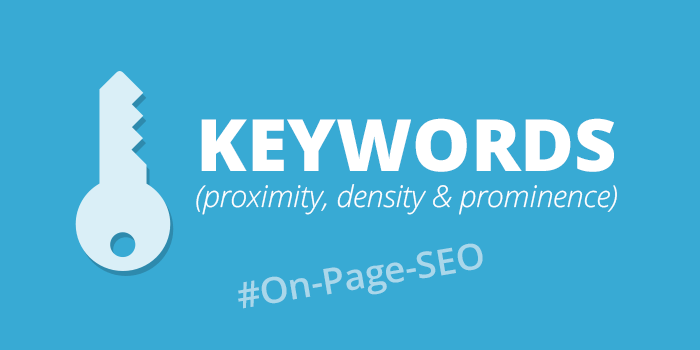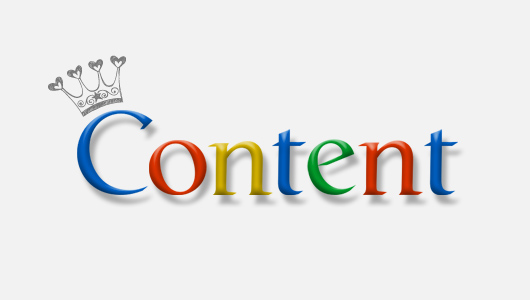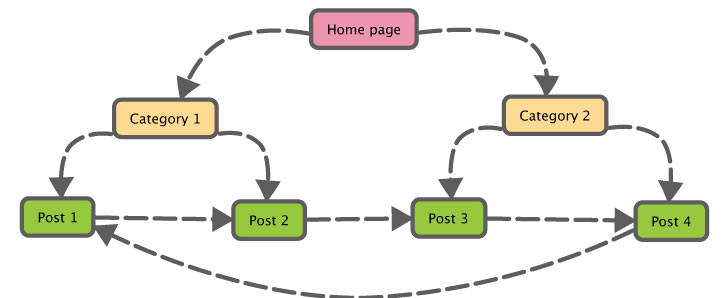Google Ranking Factors – An In-Depth Exploration into Modern Google Priorities
Back in 2006, there were rumored to be more than 200 ranking signals for Google. That number much have changed in either direction since then as Google periodically kept and will keep ringing in important changes. The exact ranking factors and their order in significance are actually not publicized by the search engine up to now and they probably will not hand out a written document about them any time soon as well. Experts like ourselves at www.seo.com.pk yet have a very precise idea of what counts most and drives rankings to the preferred direction.
.png)
Although not official, we can provide a deep insight into all the different ranking factors in Google that have most weightage when it comes to having your keywords and websites ranked at top spots. From on-page ranking factors to off-page ones, here are some of the most significant ones:
On-Page Ranking Factors

Technicalities in On-Page SEO are of great significance. Only an error-free website or webpage will be rightfully crawled by Google’s crawlers and be processed for any kind of rankings at all. Factors like Title Tags, H1 Tags and Meta Descriptions are all significant.
Of course, these are elements website owners or developers will have full control over. When done right, these will have a huge impact on Google Rankings and also how your website appears in SERP. Some of the best Title Tags, H1 Tags and Meta Descriptions optimization techniques are:
- Including main keywords in the Title Tag will help. Your Title Tag starting with main keyword or as close to the start as possible the keyword is, more likely that page will rank for that keyword
- Logical Title Tags written for humans not crawlers only with keyword stuffily are important
- Title tags should not be duplicated across the website as visibility can drop if done
- Although the H1 tag can be different from Title Tag, target keywords should still be in it
- One H1 Tag per page should be used with H2 and H3 to break up the content
- Meta Descriptions might not be ranking signals but good ones can significantly improve clock-through rates
Keywords Can Make or Break Ranking

No matter who you ask or where you read, Keywords will always be one of the top ranking factors. The role and shape of Keywords in SEO has changed significantly in the past decade and now long-tail keywords and natural language search prevails. Good old humble keyword is still one of the corner stones for Search Engine Optimization and is one of the most significant ranking factors in Google as well.
Here are some important insights:
- Keyword or key phrase should appear in the first sentence or at least in the first 100 words of the content. Keyword relevancy and placement are more critical than frequency
- For Google, it works in the order of meta information and headers first, then come the body copy with sidebars and footers at the end
- Have you key phrase matching with most common search patterns from users. Keywords should be phrased in a conversational fashion for natural language search queries optimization
- Not organic usage of keywords and excessive repetition with irrelevant keywords used is great for negative SEO but not for good SEO
- A small SEO boost can be achieved by using Keywords in the domain URL
High Quality Content Is Still King

The old phrase used to work like “Content Is King”. Even today, Quality Content Is King is a better description for content. Quality content is actually a phrase used in the world of SEO probably more than any other.
Basically, everything from spelling and grammar to ease of readability, formatting of content to its length are all critical factors. Few pointers for quality content are:
- Content should be written for humans. Algorithms and crawlers have evolved to like human friendly content as well with organically used keywords
- Readability score for your content should be at least above 60%
- Sentences and paragraphs in content should be short. Breaking them up with line breaks and subheadings is a good practice
- Overall content length should be as high as possible. Higher content length with good quality is a big ranking factor
Updating Fresh Content
Another significant on-page content signal is the freshness of it. Recent events, regularly recurring events or hot topics are great signals for different content freshness needs while the recent published content is also a great ranking factor.
Experts all agree on fresh content coming up as answer to searches at higher positions. Some significant points to not with content freshness are:
- Regular updates to content can provide higher rankings. An immediate “freshness score” is given to content based on its date of publication
- Increase in the number of external sites linking to a piece of content can also become a relevance and freshness indicator in Google
- Similarly, having links from fresh new sites can also help pass freshness right down to your content
- That being said, older content can still outrank newer content if it still has strong other indicators
Duplicate Content and Syndication
Republishing someone else’s or even your own content for that matter is a big NO in the SEO community. On the ethics side, using someone else’s content is wrong on its own and that carries forward into Google side of things as well. But still, technically speaking, there have not yet been a Google update for “Duplicate Content” and never have Google said anything about a duplicate content penalty as well.
How this works is when Google sees two copies of the same content, it makes a call about which one to rank with likely no regard to who published first. It may be dependent on which site has more authority and also the search visibility. Same copies of content on your site will more likely be a SEO suicide.
However, sometimes you can also have duplicate content from your own site. Some important points to note are:
- When you have duplicate content from your own site, setting up a 301 redirect making sure Google indexes the preferred page can help
- Instead of using a separate mobile site, using a responsive website is a good tool
- Telling Google with their recommended indicators about which page is original can solve many problems with Content Duplication and Syndication
High Authority Sites for Link Building
.png)
It is a commonly understood fact that websites with high domain authority provide best link building opportunities. These sites have great weight in eyes of Google and any link building done on sites with higher authority goes a long way in improve the target website’s authority as well.
You should always choose sites with higher authority when link building on them. Some key points to note for these are:
- Write quality content and post it on high authority sites to link back efficiently
- Improve your own site’s authority by choosing a logical site structure
- To show the relevancy and trustworthiness of your business, start a blog. It also helps keep the content fresh
- Don’t worry about negative reviews on your site. This may affect customer perception but doesn’t necessarily affect ranking. Google checks content in reviews and not for actual rating
Internal Linking On the Website

Internal linking is considered to be the nervous system of the internet. Different types of links on a website explain its architecture to Google and helps it rank higher as well.
With internal linking, you can tell Google and also your site’s visitors about what page of content is more important. There should be a map of internally linked pages right through the website and every page should have at least one internal link on it pointing towards useful information relating to it.
Internal links also improve the user experience by a great deal. When you have hub pages and others linking from it, users will get to know your site better and be able to find what they are looking for more efficiently. Users will stay on your website and pages for longer periods of time giving Google the right signals about where to rank it in rankings.
Outbound Links are Important
Also termed as external links, outbound links point outwards from your website to other websites. Unless you’re outbound links point to a super spammy website, your site’s authority will be passed along to the pointed sites as well. Giving outbound links to other websites also sit well with Google when processing for a networked website ranking it higher.
The process is simple, you give links to others and others may give them to you. Even when you have your own other websites pointed through external links, you can link back from them as well. This would transfer the higher authority among different websites that you own ranking them all higher as a result. Some key points are:
- Your website will not ‘leak’ link juice and lose its higher ranking when you do external linking. Page retention doesn’t apply here
- In Google’s eyes, outbound links describe a trust signal. When your website is linking to references backing up your data and research, there would be a good trust signal passed to Google as a result
- You can also use Affiliate Links on your website. However, be sure to use nofollowmeta tag that complies with Google’s best practices
Importance of Backlinks

So, you have heard about backlinks right. You also know that they are pretty significant in SEO no matter what type of a website you have. Why are backlinks so important then?
As we discussed in the external linking section that your higher ranking power passes along as you link externally, back linking is the reverse of that. Linking back to your website from external sources will improve your search ranking significantly. According to Google experts, links pointing back to your website are one of the top three ranking factors.
The Whole SEO Community works with trading backlinks. However, in actual theory, paid back linking is considered a black hat technique by Google and will likely get a penalty when discovered. Google no longer accepts links on blogs exchanged for free gifts. However, Google also doesn’t have anything against proper link-building in principle. Contrary to that, backlinks tell Google what a website is all about and gives it preference in ranking on the basis of backlinks. Some key points are:
- The number of individual domains pointing towards your website is a very important factor in Google rankings
- Authority of pointing domains is also of great importance. Having fewer links with higher authority is always a better practice than having many links with lesser authority
- Relevancy of backlinks is considered a great ranking factor as well. When you have backlinks from website of your own website’s niche, you will get most authority and ranking jump
- Choose backlinks from a diverse range of external websites. Having too many links from the same domain can be seen as spam work
- Long-form links from blogs or high quality general content are also of higher value than links in short-form news based posts
If you are a general business website owner, all this technical talk can help you get the idea about what ranking factors are to rank higher in Google searches. However, to do all these right is a work of a professional. www.seo.com.pk is your most reliable Search Engine Optimization services provider based from Lahore, Pakistan. We have decades of experience in digital marketing and are always updated with the latest developments in Google and its ranking priorities. Contact us now to get your business website ranked at top spots and make the most from your digital presence.
 :
:  :
:  :
:  :
:  :
: 





 ! +92-333-6553048
! +92-333-6553048
 USA
USA UK
UK CA
CA UAE
UAE

Thanks for sharing with us such a nice article and i think it would be a help me a lot so keep posting.